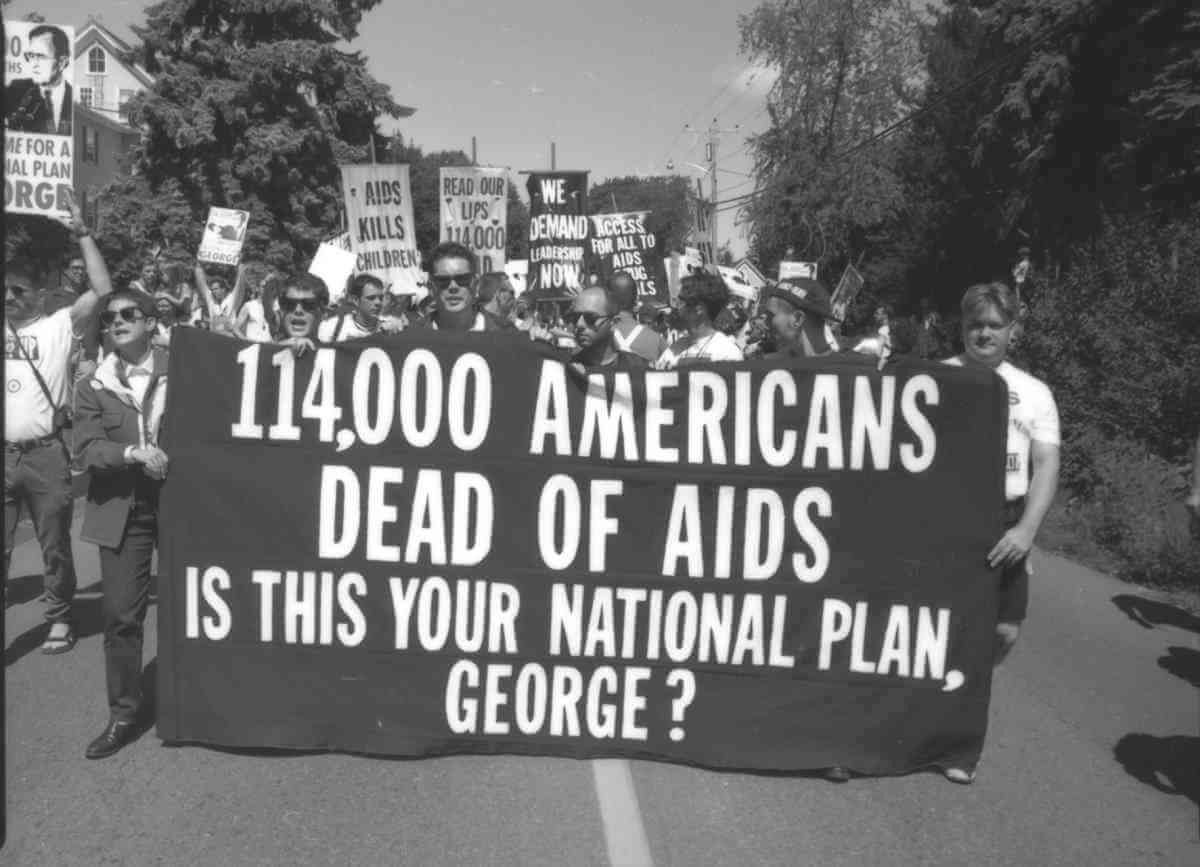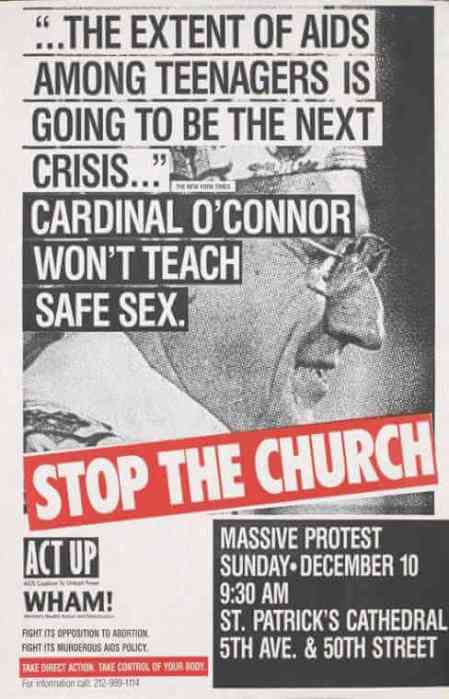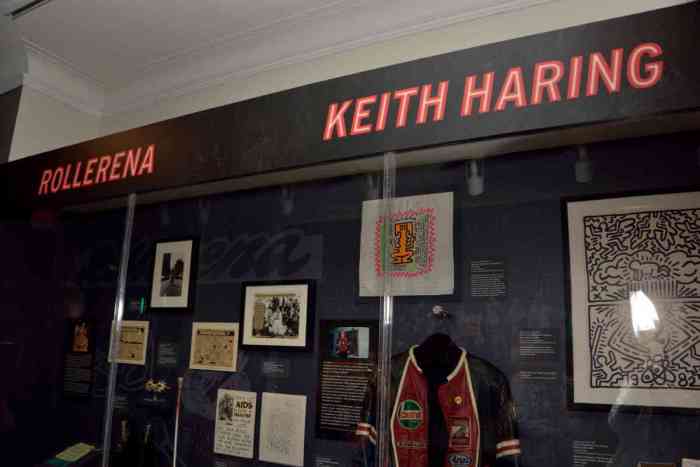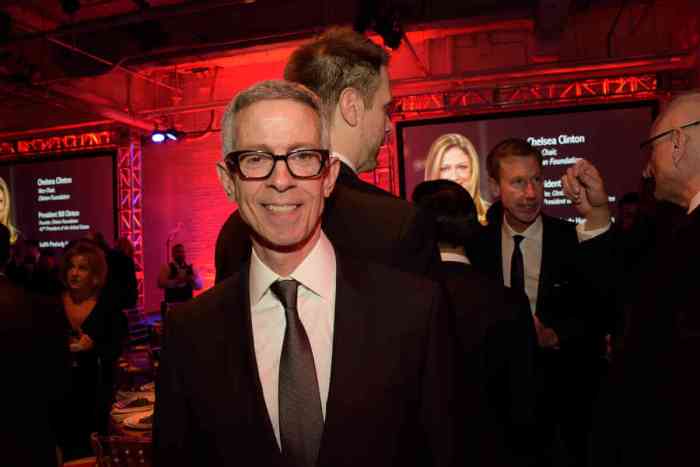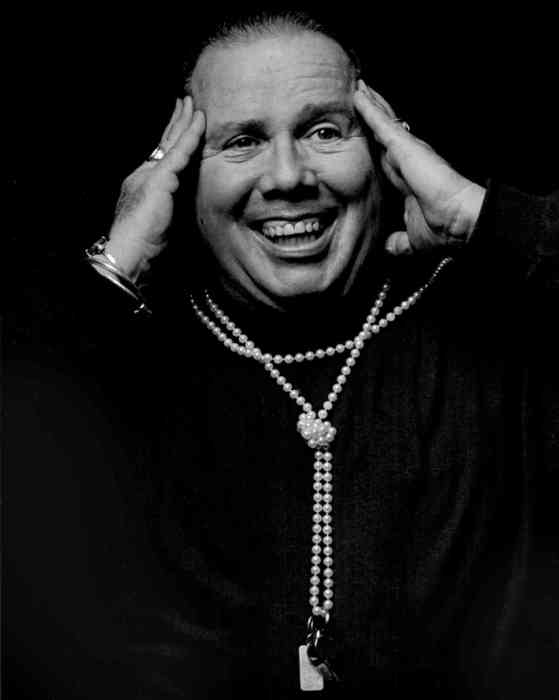While the mainstream media is paying unadulterated homage to former President George H.W. Bush on his death at 94, AIDS and LGBTQ activists who survived his neglect toward the HIV epidemic and his opposition to gay rights are being painfully reminded how little value is placed on the lives of those in our community — including by some gay reporters.
AIDS deaths accelerated dramatically under Bush in the four years beginning January 1989 — more than 100,000 on his watch in the US and a million worldwide — as he avoided speaking out effectively on the crisis or funding the kind of prevention efforts with any chance of getting it under control. Yet an 11,000-plus word obituary in The New York Times — written by Adam Nagourney, an out gay man — had not a single reference to the holocaust of AIDS or the non-response from Bush that made him a constant target of ACT UP’s advocacy, anger, and action.
Journalist Michelangelo Signorile, an ACT UP stalwart, wrote on Facebook that “Times columnist Frank Bruni, who is gay, wrote a glowing column about George H.W. Bush on World AIDS Day, upon his death, lauding Bush for his ‘uncommon grace.’ Not once did he mention the words ‘AIDS’ or ‘gay.’”
A corrective piece run only on December 3 in the Times took note of Bush’s failures on AIDS, noting that by the end of his term HIV-related deaths had become the number one killer of men 25 to 44 in the US.
Bush was silent on AIDS as vice president until Ronald Reagan finally publicly addressed it in detail six years into the epidemic — in June 1987 at an AmFAR benefit in Washington where the president was booed for promoting regressive policies counterproductive to confronting a public health emergency. Bush represented the US at the International AIDS Conference the same weekend in Washington and was similarly booed. On his way out, Bush was overheard saying, “Who was that? Some gay group out there?”
As president, Bush remained silent on HIV/ AIDS for his first 14 months in office and when he did give a speech in 1990, he was confronted by Urvashi Vaid, head of what is now the National LGBTQ Task Force, with the sign: “Talk is Cheap, AIDS Funding is Not.”
Bush refused to speak at the International AIDS Conference in San Francisco in 1990. At a demonstration in New York that year by ACT UP and the National Organization for Women at the Waldorf Astoria where Bush was fundraising for the GOP, activist and queer icon Rollerena told Gay USA, “Instead of being there [in San Francisco], he told the American people he would rather be with Jesse Helms [the virulently anti-gay Republican senator from North Carolina]… It’s like him having dinner with Hitler.”

The activists outside the Waldorf carried coffins saying “Bush = Killer.”
ACT UP dogged Bush from his Kennebunkport retreat to the White House — where the ashes of dead members were thrown onto the lawn — to his campaign headquarters the night he failed to win re-election. Reacting to the protests at his Maine summer home, the president talked about the need for “behavioral changes” rather than the federal government’s public health responsibilities.
Ann Northrop, another ACT UP leader (and my co-host on “GAY USA”), said, “George Bush was a mixed bag, but his disgusting dismissal of the legitimate demands of AIDS activists and his repulsive distinction of innocent babies versus the bad behavior of gay men were shocking. And then there’s Clarence Thomas, not to mention his eagerness to sign on to Ronald Reagan’s anti-abortion agenda so he could be vice president. Just the tip of the iceberg of his overlooked sins.”
Bush stood by his nomination of Justice Thomas despite credible claims that he sexually harassed Anita Hill, and he was narrowly confirmed by the Senate. Thomas became the most reactionary member of the court, voting to uphold the constitutionality of sodomy laws, Colorado’s discriminatory anti-gay Amendment 2, and abortion restrictions while dissenting on the two decisions opening marriage to same-sex couples.
Bush caved to right-wing pressure frequently in his political life. To become Reagan’s running mate, he did in fact abandon his support for reproductive choice and went on as president to veto any bill that provided funding for abortion for poor women. To become president in 1988, he approved the infamous Lee Atwater’s Willie Horton ad, attacking Democratic nominee Mike Dukakis for a prison furlough program (similar to one Reagan had supported as governor of California) that had allowed Horton out long enough to commit a rape. They used a darkened picture of Horton to make their racist point — in their effort to make Horton “Dukakis’ running mate.” (Atwater apologized for the ad on his deathbed.)
Even friendly retrospectives on Bush’s life have noted a consistent pattern of his playing to the electorate’s uglier instincts before expressing after-the-fact regret and a commitment to return to his patrician, “kinder and gentler” posturing.
As president, Bush signed Congress’ override, in its oversight of the District of Columbia, of Washington’s ordinance giving domestic partner benefits to its municipal employees.

In 1992, Bush agreed to a prime speaking spot at his Houston re-nominating convention for his Republican primary opponent, the Catholic reactionary Pat Buchanan, and also allowed Evangelical reactionary Pat Robertson (who had bested him in the 1988 Iowa caucuses) to address the delegates. Both men used their time to ramp up the culture war, especially against “homosexuals” and feminists. Of Buchanan’s speech, where he warned, “Block by block, my friend, we must take back our cities, and our culture,” the late Texas journalist and humorist Molly Ivins wrote that it “probably sounded better in the original German.”
Bush’s craven acquiescence to his party’s extremists has been widely credited with turning moderate voters to Bill Clinton or the third party candidacy of Ross Perot, who got 19 percent of the vote and helped the Democrat win.
The major movement on the epidemic during Bush’s four years in office came in the enactment of the Ryan White CARE Act and the Housing Opportunities for People with AIDS (HOPWA) legislation, which provided the first specific federal support for treatment and housing for people with what was then termed a full-blown AIDS diagnosis. Ronald Johnson, who held senior policy positions with the Minority Task Force on AIDS, as the city coordinator on AID policy under Mayors David Dinkins and Rudy Giuliani, and at Gay Men’s Health Crisis before heading up the Washington policy group AIDS United, recalled that it was activists’ pressure and bipartisan leadership in Congress — with Massachusetts Democrat Ted Kennedy bringing on board Utah Republican Orrin Hatch after several years of North Carolina’s Helms’ blocking any bill — that led to Ryan White’s passage.
Charles King, an ACT UP member who founded and still leads Housing Works, recalled Bush “wholly embracing” the legislation, though he too noted that it had “huge bipartisan support” in Congress.
King added, however, that Bush failed in not treating AIDS “like the crisis it was. There wasn’t the ramped up research that we needed. And Ryan White and HOPWA were a tiny sum considering the true need. His homophobia kept prevention efforts from being what they could have been.”
While Bush also signed the Americans with Disabilities Act — a significant advance — he vetoed the Family and Medical Leave Act. He also never accounted for his role in the Iran-Contra scandal and used his final days in office in 1993 to pardon six Iran-Contra defendants, short-circuiting trials that would have exposed significant foreign adventuring crimes of the Reagan-Bush administration.


